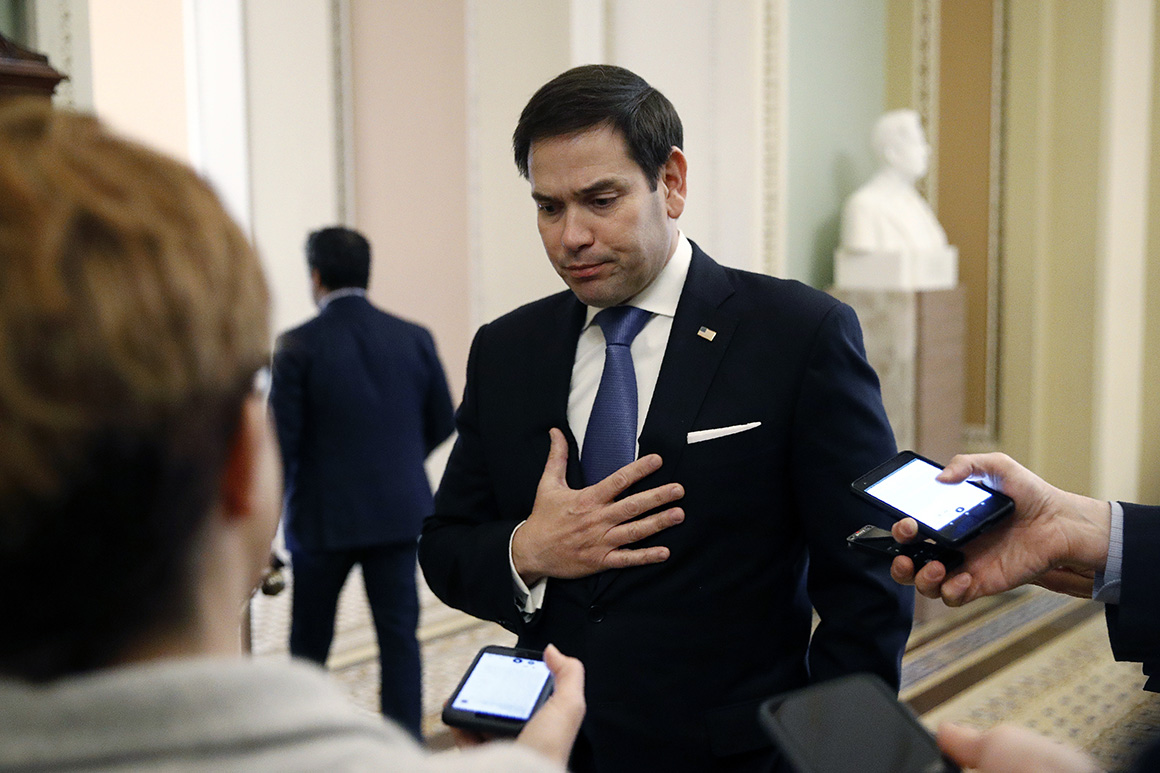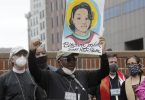
“Josh believes we have reached the limitations of the PPP,” said Hawley’s chief of staff, Kyle Plotkin. “It was a temporary lifeline, but now it’s time to think about recovery. Too many small businesses aren’t able to access the PPP. At the time of the passage, the nearly nationwide shutdown orders weren’t in place yet and the economic ramifications were unknown. But after the government shut down the economy, we now have mass unemployment. We have to do something that addresses the severity of the crisis.”
Hawley argues, not unreasonably, that because the government’s shelter-at-home directives caused the economic collapse, the government has a responsibility to respond with something to match the scale of the problem.
Before the crisis, Rubio, Hawley and their fellow Republican populists (the term applies more to Hawley than Rubio) seemed to amount to little more than a small group of legislators, a tight network of D.C. policy wonks, and some right-leaning opinion columnists. But when the pandemic struck, they were suddenly crafting the most consequential and interventionist legislation of the century. Now the question is whether they represent the future of the GOP — the rising stars who will define the party after Trump — or whether they are simply like firefighters called in for an emergency before the party defaults back to its traditional small-government worldview.
The two most recent and gravest national crises did not alter politics in a predictable or even consistent way. The aftermath of 9/11 was marked by a surge in support for George W. Bush and two elections that tilted toward the GOP. By the third national election after the terrorist attacks, in 2006, Bush’s response, especially the war in Iraq, was deemed to be a catastrophe. The economic collapse of 2008 likely helped Obama win that year’s presidential election, and it facilitated the passage of a sweeping agenda in 2009, but an anti-government backlash quickly followed in 2010.
But those twin crises did have lasting impact: both parties have become more anti-war and more economically populist. (The hard-to-argue-with evidence for this claim is the influence of Bernie Sanders on Democrats and the election of Trump.)
Perhaps not surprisingly, the GOP populists see the pandemic as accelerating the still inchoate Big Government impulses that Trump has often, though inconsistently, represented.
„This is going to jump-start the already simmering debate over how the right should deal with domestic policy,” said Henry Olsen, one of the leading intellectual champions of a more economically interventionist conservatism. “Clearly there’s going to be demand for many types of stimulus. There’s going to be demand for the view that we’re not going to let this happen again. And a libertarian, hands-off policy doesn’t really respond to that.”
It’s more interesting to muse about how this crisis might rewire Republican politics, but there’s a strong case for skepticism about how the pandemic will rewire conservatism.
Source: politico.com
See more here: news365.stream





